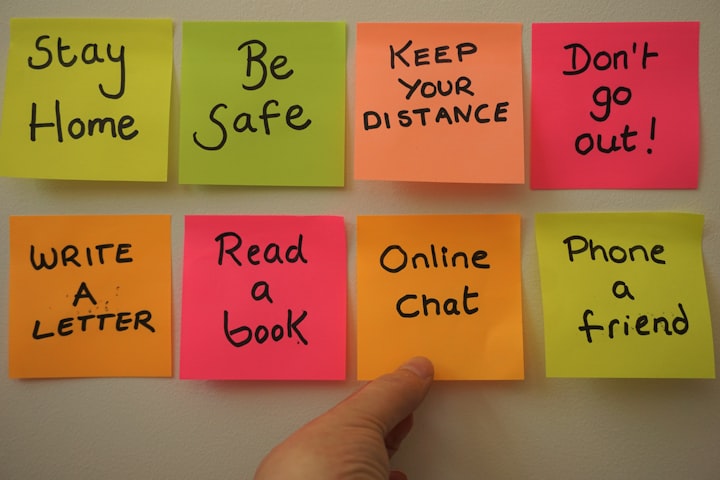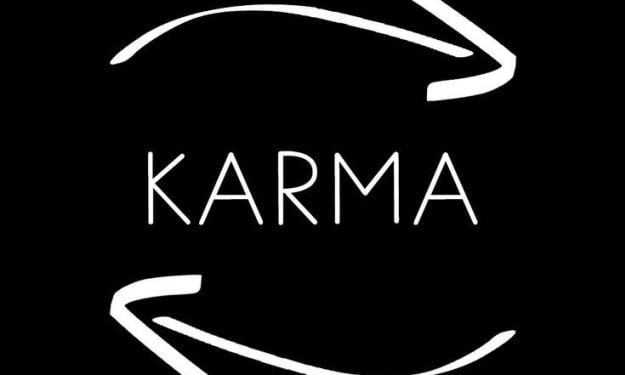5 Things To Consider This Alcohol Awareness Week
A look at the importance of learning from designated campaign weeks / months.

There’s a deep rooted stigma around alcohol, but it is rare that something that is such a common component of all of our lives is so difficult to discuss. We love to cheer for ‘wine aunts’ and to end tough days with ‘just the one’ (which never really is just one) but why do we accept this culture when we so openly condemn other drug related habits? Across the world the sales of alcohol soared as we entered the Spring Lockdown, but as we sit in our second lockdown I want you to think about your consumption of alcohol under a microscope. Lockdown allows us time to reassess our lives and to form new healthy habits, so here are five things to consider this Alcohol Awareness Week.
1. Why Campaigns Matter.
Last month celebrated Breast Cancer Awareness, and across the nation people dawned a pink ribbon, learned how to check themselves and raised vital funds for research and hospices alike. But what if I told you that in recent years one in eight breast cancer diagnoses were related to alcohol consumption, and in the last ten years that stretched to one in ten diagnoses in Ireland? When people think of alcohol and illness they automatically connect that to liver disease, pancreatitis and maybe brain damage. Although, we fail to consider how our lifestyles dictate our health where the links aren’t as obvious, and so we become blind to how we are hurting our bodies. Following the information broadcast during campaign weeks and months is an easy way to learn something new about yourself, and will help us to make better decisions going forward.
2. Think Before You Drink (Too Much)
For those that studied biology or home economics in school, certain RDAs may stick out in your memory like for me, I always remember that I need 30-35 grams of fibre a day. The food pyramid lacks information on exactly how much alcohol is 'ok' to consume and how to do so safely, and because of this, it isn’t really something we think too much about. However, there is information out there that we should be abiding by.
It is recommended that the average man doesn’t consume more than 17 standard drinks a week, and the average woman shouldn’t consume more than 11 - but what is a ‘standard drink’? I was shocked to learn that a half pint, a small glass of wine or a pub measurement of a spirit is considered a standard drink and not a full pint, a can or a bottle. To break it down further, 17 standard drinks is 9.7 units of alcohol and 11 standard drinks is 6.3 units of alcohol but one bottle of wine is 9 units of alcohol, surpassing the amount of alcohol recommended for women and almost equalling what is recommended for men over one week.
It is easy to fall into a habit of having a few drinks an evening in lockdown and excuse it by telling yourself it is cheaper than the pub or you would be doing it anyway, but is it really necessary? If you are to consume the entire weekly allowance of alcohol, it is advised to do so over three days with day-breaks in between, which still allows you to treat yourself here and there. I’m not in a position to tell you not to drink, as I am not sober, but spreading a bottle of wine across Thursday night Zoom quiz and Sunday dinner is a good place to start.
3. “ I only drink, I would never touch anything else”
According to Alcohol Ireland, there are twice as many deaths due to alcohol as due to all other drugs combined. Alcohol is legal, but it is also a drug, and it is lethal. The legality seems to create a moral high ground for people to stand on, but when something is not deemed to be ‘wrong’ for you there is little thought of moderation. The sales of alcohol are not restricted once you are of age, and so there are little measures in place to protect people from consuming too much. This justification falls with the individual, and it is up to them to decide what is enough.
Educating yourself on the health guidelines around alcohol and the potential risks associated with it, as well as analysing your relationship with it and why you drink is an important exercise to undertake. If you are so repulsed by other drugs, you should consider why you excuse alcohol intake. These are tricky conversations to have with yourself when you are brought up in a very black and white ‘this is legal and this is not’ environment but are crucial to learning about your own limits.
4. Session Depression
We all know that hangovers are tough, but session depression is a scary place to find yourself in. Alcohol can create a chemical reaction in your brain that triggers an anxious or depressive reaction even in people that have not been predisposed to these conditions. Alcohol also reduces the REM cycle which means it disrupts your sleep pattern and leaves you feeling groggy, drowsy and irritable. As a result, if your first time dealing with these feelings is on the back of a night of drinking, it can be even more difficult to process than regularly. These emotions can last for days following the night out and can interrupt your life in ways you’ve never experienced before. Staying within your limits, drinking water and sleep are essential to help combat this depressive period.
Next time you are having a few drinks, be it out or at home, stay away from doubles and stick to half pints. These are just small changes that you can make that will greatly improve your quality of life.

5. Challenge Yourself
Setting yourself a challenge is a fool-proof way to increase your focus, motivation and stamina in lockdown and regular life, and the dopamine that’s released after you win is something else. On the back of this campaign week, challenge yourself to a Sober Night. This could be for the weekly zoom quiz, for the next night out when restrictions lift or maybe just a Friday night in front of the TV; whatever night you pick make sure it challenges you to break a routine. The trick is to keep your hands busy so pour yourself a non-alcoholic beverage of your choice (or try some alcohol free wine/beer/gin alternatives) and note how effortless it is to find enjoyment from the film or your company without the headache in the morning. I had my first sober night out in the summer before my second year of Uni and I can promise you it is so much more comfortable than you think!

From a young age I have always been very 'Alcohol Aware' in terms of my limits and the dangers of it, but it was in University that I began to question my relationship with alcohol. Learning that I don’t need to drink alcohol to relax in the evening, to dance or enjoy music with my friends has been the greatest blessing of my life. I have become more conscious of the simple benefits of having sober nights out, such as having the full next day for activities instead of lounging around the house. More than anything, having sober nights out meant that I never had to compromise parties or gigs for early rises ever again and has let me enjoy life to the fullest.
If any information in this article has affected you please see Alcoholics Anonymous for assistance.

About the Creator
Sorcha Murphy
Taking a different perspective to what life throws at me.






Comments
There are no comments for this story
Be the first to respond and start the conversation.